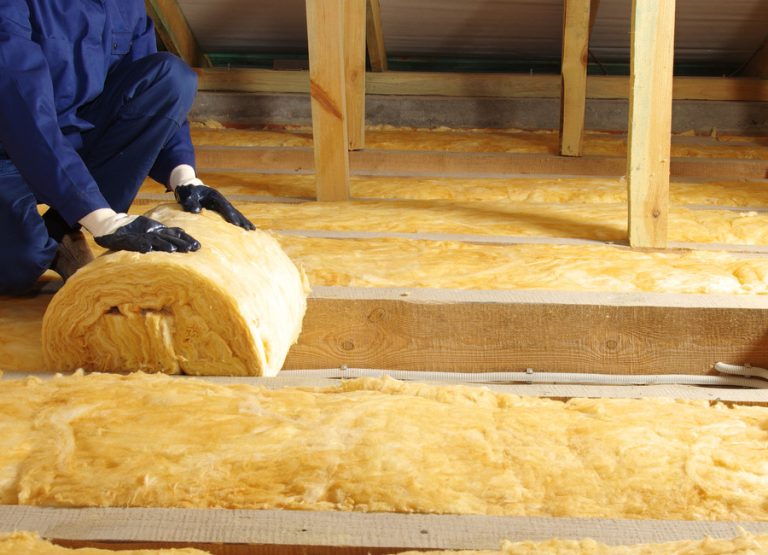How Does External Wall Insulation Improve Energy Efficiency in Homes?

Installing external wall insulation boosts your home’s energy efficiency by decreasing heat loss and shielding against drafts. This helps maintain a consistent temperature and prevents condensation, making your heating system more effective and reducing energy bills. It also enhances your home’s comfort by controlling moisture, reducing mold risk, and providing better acoustic insulation. By improving thermal performance, it mitigates issues like thermal bridging and decreases greenhouse gas emissions, lowering your carbon footprint. Additionally, using sustainable materials improves your home’s exterior durability. Keep going to uncover more benefits of enhancing your home’s insulation.
Reducing Heat Loss
By installing external wall insulation, you can greatly decrease heat loss from your home. This type of insulation acts as a protective barrier, keeping the warmth inside and the cold out. For those living in Glasgow, opting for external wall insulation Glasgow services can make a substantial difference. One of the key benefits of this is minimizing drafts. With proper insulation in place, you won’t feel those annoying cold spots near walls or windows. This makes your living space far more comfortable, especially during the colder months.
Another significant advantage is preventing condensation. When warm air from inside your home meets cold exterior walls, condensation forms. Over time, this can lead to dampness and even mold, which can be harmful to your health. External wall insulation helps maintain a consistent temperature on your walls, reducing the chances of condensation forming.
Lowering Energy Bills
In addition to enhancing comfort and preventing condensation, external wall insulation can greatly reduce your energy bills. By adding a layer of insulation to the exterior walls of your home, you noticeably cut down on heat loss. This means your heating system doesn’t have to work as hard to maintain a comfortable temperature, leading to immediate cost savings on your energy bills.
Imagine not having to crank up the thermostat as often during the colder months. With less heat escaping through the walls, your home retains warmth more efficiently. This translates directly into financial benefits, as you’re using less energy to achieve the same level of comfort. Over time, these savings can add up, making the initial investment in external wall insulation well worth it.
Furthermore, as energy prices continue to rise, the financial benefits of reducing your consumption become even more significant. Lower energy bills not only ease the strain on your wallet but also increase the overall value of your home.
Prospective buyers often look for energy-efficient features, and having external wall insulation can be a strong selling point. Essentially, investing in this insulation is a smart financial move that pays off in multiple ways.
Enhancing Home Comfort
You’ll immediately notice a more comfortable living environment once you’ve installed external wall insulation. This improvement isn’t just about temperature; it’s also about creating a healthier and quieter home. One important benefit is moisture control. The insulation acts as a barrier, preventing dampness and reducing the risk of mold growth. This keeps your walls dry and helps maintain a healthier indoor environment for you and your family.
Another notable advantage is the enhancement of acoustic insulation. External wall insulation greatly reduces noise from the outside, creating a quieter and more peaceful living space. Whether it’s traffic, neighbors, or any other external noise, you’ll find your home much more serene after the installation.

Additionally, the insulation helps in maintaining a consistent indoor climate, minimizing cold drafts and hot spots. This consistency contributes to a feeling of overall comfort throughout your home.
Improving Thermal Performance
Not only does external wall insulation enhance home comfort, but it also greatly boosts thermal performance by reducing heat loss and improving energy efficiency.
When your walls are well-insulated, you can greatly reduce the amount of heat that escapes through them. This is important because less heat loss translates to lower energy consumption, which in turn reduces your heating bills.
One of the major culprits of heat loss is thermal bridging, which occurs when heat travels through building materials that are poor insulators, like metal or wood. External wall insulation helps to mitigate thermal bridging by covering these materials, creating a continuous layer of insulation that hinders heat flow. This seamless barrier ensures that your home retains warmth more effectively.
Choosing the right insulation materials is key to optimizing thermal performance. Materials such as expanded polystyrene (EPS), mineral wool, and polyurethane foam are excellent options as they possess high thermal resistance. By selecting effective insulation materials, you’ll maximize your home’s energy efficiency and make it more comfortable throughout the year.
Incorporating external wall insulation into your home’s design is a smart move. You’ll enjoy a cozier living space and benefit from significant energy savings.
Environmental Benefits
Implementing external wall insulation offers significant environmental benefits by reducing your home’s carbon footprint. By enhancing your home’s thermal performance, you’re cutting down on the need for heating and cooling. This directly translates to lower greenhouse gas emissions since your HVAC systems won’t have to work as hard. Reducing energy consumption is a key step in minimizing your overall carbon footprint and contributing to a healthier planet.
Moreover, many modern external wall insulation systems are made from sustainable materials. These materials not only provide excellent insulation properties but are also eco-friendly, often recyclable, and sourced responsibly. Using sustainable materials means you’re supporting practices that are less harmful to the environment and help conserve natural resources.
In addition to lowering emissions and using greener materials, external wall insulation can also improve the durability of your home’s exterior. This means less frequent need for repairs and replacements, which further reduces waste and the environmental impact associated with manufacturing new materials.
Installing external wall insulation boosts your home’s energy efficiency by decreasing heat loss and shielding against drafts. This helps maintain a consistent temperature and prevents condensation, making your heating system more effective and reducing energy bills. It also enhances your home’s comfort by controlling moisture, reducing mold risk, and providing better acoustic insulation. By improving…
Recent Posts
- Path to Success Begins with Performance Marketing Expertise
- Exploring the Dark Web’s Potential for Secure Digital Transactions
- Postgraduate Study, Mental Health and Prioritizing Well-Being
- White Borneo Kratom – A Beginner’s Guide to This Powerful Strain
- Hidden Wiki and the Deep Web – An Overview of its Dark Content

